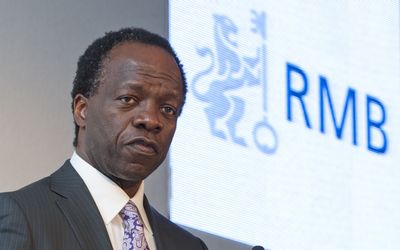SIZWE Nxasana is CEO of FirstRand, an executive committee member of Business Leadership South Africa and a founding trustee of the National Education Collaboration Framework Trust.
Is it politically dangerous for business leaders to publicly support the NDP?
I don’t think so. Everybody has been critical of the lack of policy certainty in South Africa and the fact that there have been a lot of different plans from way back. The NDP plays a really important role in creating a vision for the country and where we want to be in 2030, which is the first time we have done that. For business as a constituency to support it is something to be applauded.
The only issue is whether business understands what the plan really means and says, and whether business has made substantive contributions in analysing the different aspects, detail and data that are in the plan. Currently the position from which business comes when it supports the NDP is very general and not based on evidence, research and analysis.
What are the practical consequences of that?
Let’s just look at the economic part of the plan. Cosatu, for example, as a stakeholder representing large sections of labour in the country, has analysed the plan and has come up with areas which it criticises. Business in its different formations may have looked at pieces of it, for instance the banking sector has looked at areas where the financial services sector broadly can play a role in supporting the plan.
However, when you dissect the plan and the critical areas it seeks to address, namely inequality, unemployment and poverty, business as a collective has still not gone to the appropriate level of detail of analysing the best way to address those. Therefore, there are gaps in the support of the plan. Business may be supporting a generic idea of one plan, but they have not fully examined whether they agree with the detail.
There is a lack of research and analysis capability in business associations. It is counter intuitive when you think about it, because you would assume business as a formation with its resources does have that capability, but the fact of the matter is I have not seen a cohesive analysis of the NDP that is evidenced-based. Organised business structures simply do not have research capabilities. We are reactive and even then we are probably less evidence-based than we should be.
Legislation that may come out of government has been influenced by policy debates way beforehand and it is too late for business to have an impact by the time that you have draft legislation on the table.
What do you make of the apparent concession by the ANC to Cosatu that the economic chapter or parts of the economic chapter will not be implemented?
I don’t think the ANC is saying that the economic chapter will not be implemented, I think it is saying there are valid points that are being raised by Cosatu in its critique of the plan that may require analysis or further research. I think Cosatu arguing from a position of labour and organised labour certainly identifies gaps or inaccuracies in the plan – in its assumptions, data, conclusions or recommendations.
The plan has largely received support from business; it has received qualified support from Cosatu as a labour movement, especially qualified in respect of the economic chapters.
When you look at the pattern of growth over the past two decades, financial services has been the fastest-growing component of GDP, and the labour-absorbing areas of the economy have not been the ones that have grown. What did we do wrong?
We did a couple of things wrong. In the past 20 years worldwide there has been a shift in skills that are required in developing economies from unskilled to semi-skilled and highly skilled labour.
The services sector has grown but the level of growth in the sector could’ve been better in terms of the absorptive capacity for labour. In banking and the ICT sector, arguably there are between 100,000 and 150,000 vacancies today; however, we could’ve grown even more had the country been able to produce the kind of skills that are required. And this applies to all sectors. Look at health, for example, from pharmacists to health technicians, right up to vets and doctors, we have major shortages.
Demand for education has grown over the years but the ability of universities and university of technologies to produce the kind of skills that are required to grow the economy has fallen way behind. We have a shortage of something like 200,000 teachers today, especially in maths and science. Had business, labour, government and institutions of higher education anticipated and responded to that gap, the story would be different.
Now the Human Resources Development Council which includes government, business, labour and civil society, is developing an integrated human resources plan for South Africa which is looking at addressing the skills shortage. It’s probably going to take five to 20 years to start producing people to fill the gaps. But at least we now know what the demands are and therefore the shortage in supply that we have.
The plan acknowledges that the services sector is probably where the growth is going to be. Is this a global phenomenon that we’re passengers on?
Absolutely, but not just that. The country has also been slow even in the areas in the primary sectors where you need higher-level skills than we have in the country. The statistics indicate that in the last five years there has been an increase in investment in automation, probably faster in South Africa than other countries in the peer group. So the country needs higher-level skills in the primary industry sectors as well.
In the past there has been a fundamental mistrust between business, labour and government. You’re describing clear co-operation between those groups. What has changed?
Government has taken a leadership role in the building of trust. I guess there is still a huge way to go in closing the trust gap. It’s a leadership issue that we’re going to have to deal with. Government, having developed the plan, has led the engagement process with the social partners. That’s why you see both labour and business having a lot of dialogue with the government.
We still need more business-to-labour dialogue at a strategic economic level beyond the factory floor negotiations.
How has FirstRand adjusted its planning in light of the plan?
In a number of ways. We’ve been discussing our stewardship role in the country and it’s clear we need to do more to address poverty, inequality and unemployment. We’ve always been doing things in social investment but in the context of the plan we’ve made adjustments.
Our involvement as a group at a system-wide level in education is a direct result of studying the objectives of the NDP.
Second, we’ve examined our role as a business and there are elements where we can play a role as a bank. Just take infrastructure or health, for example. There are various aspects that shape our role, either as a corporate citizen or directly as a bank.
Doesn’t the plan provide an opportunity for businesses to be opportunistic, particularly when you look at specific infrastructure projects?
Absolutely. Look at the chapter in the plan that talks about the green economy. That has driven significant growth in the banking sector’s participation in the renewable energy projects over the last few years. There are the 18 strategic infrastructure projects and we’ve positioned ourselves to be an active player in those.
FirstRand and Rand Merchant Bank have been really good in structuring solutions for public-private partnership initiatives. We have a lot of expertise in that regard so we are very well positioned.
The diversification of our economy from an export-led standpoint, given regionalisation, is also a particular area where the plan creates opportunities. Our growth into the rest of the continent takes into account the kind of trade relations South Africa has with those countries and how the plan will develop them. It’s created policy certainty and business opportunities for us already.
So there is a sense that if businesses are not in tune with the plan they are going to be suboptimal in terms of their own planning?
Absolutely, that’s why companies must look at the plan. I would argue from a role we play as corporate citizens because it is important for business to contribute to a more sustainable environment in the long term. But there are certainly economic opportunities that the plan presents to business across the board, because it touches all areas of commerce, which must benefit any company. Therefore it is critical for business to understand the plan in detail.
But business has to be confident the elements of the plan are going to be delivered on. And there are reasonable grounds for business to think it won’t make any difference. How much confidence is there?
Confidence is there but also a fair amount of scepticism. But sometimes the scepticism is not founded on the facts. It is part of the trust issue. When you look at the commentary, it appears there is prevarication from government on the plan. But I don’t think that is the case. There may be some people, even ministers, who may question aspects of the plan, but that does not mean the plan won’t be implemented. If we cast doubt as business, we undermine the plan we say we are supporting.
People generalise and say the plan won’t see the light of day because the unions are against it. That’s not correct. Cosatu has not said it rejects the plan, but it has raised issues in the plan. There are affiliate members of Cosatu, in my view in the minority, who have rejected the plan.
Are you talking about Numsa?
Numsa or others but the fact is they are in the minority. But that does not mean labour is against the plan.
It sounds like you are advocating for evidence-based lobbying positions with respect to the plan and delegitimising ideological lobbying positions. Is that fair?
Yes. The plan is a good one. It is extensive and integrated and touches all areas. It really does a good job of identifying the gaps and barriers in the country and offering the solutions.
So the solutions are on offer, but then the scope is open for new evidence and better solutions.
Absolutely.
So the plan really is about the prioritisation of evidence rather than a programme of action?
It’s a combination of both. There are certainly actionable recommendations in the plan. There are the strategic infrastructure projects and education, for example. We shouldn’t wait as a country, we should implement with speed. But I’m suggesting in those areas where there are flawed arguments and data we should enhance the plan. But let’s not wait.
Government has taken a leadership role in the building of trust. I guess there is still a huge way to go in closing the trust gap. It’s a leadership issue that we’re going to have to deal with.




















Change: -0.47%
Change: -0.61%
Change: 0.53%
Change: -0.42%
Change: -2.12%
Data supplied by Profile Data
Change: -0.46%
Change: -0.19%
Change: -0.47%
Change: 0.00%
Change: -0.16%
Data supplied by Profile Data
Change: -1.11%
Change: -1.23%
Change: -0.78%
Change: -1.36%
Change: -1.24%
Data supplied by Profile Data
Change: 0.52%
Change: 1.35%
Change: 1.31%
Change: 0.18%
Change: 1.12%
Data supplied by Profile Data